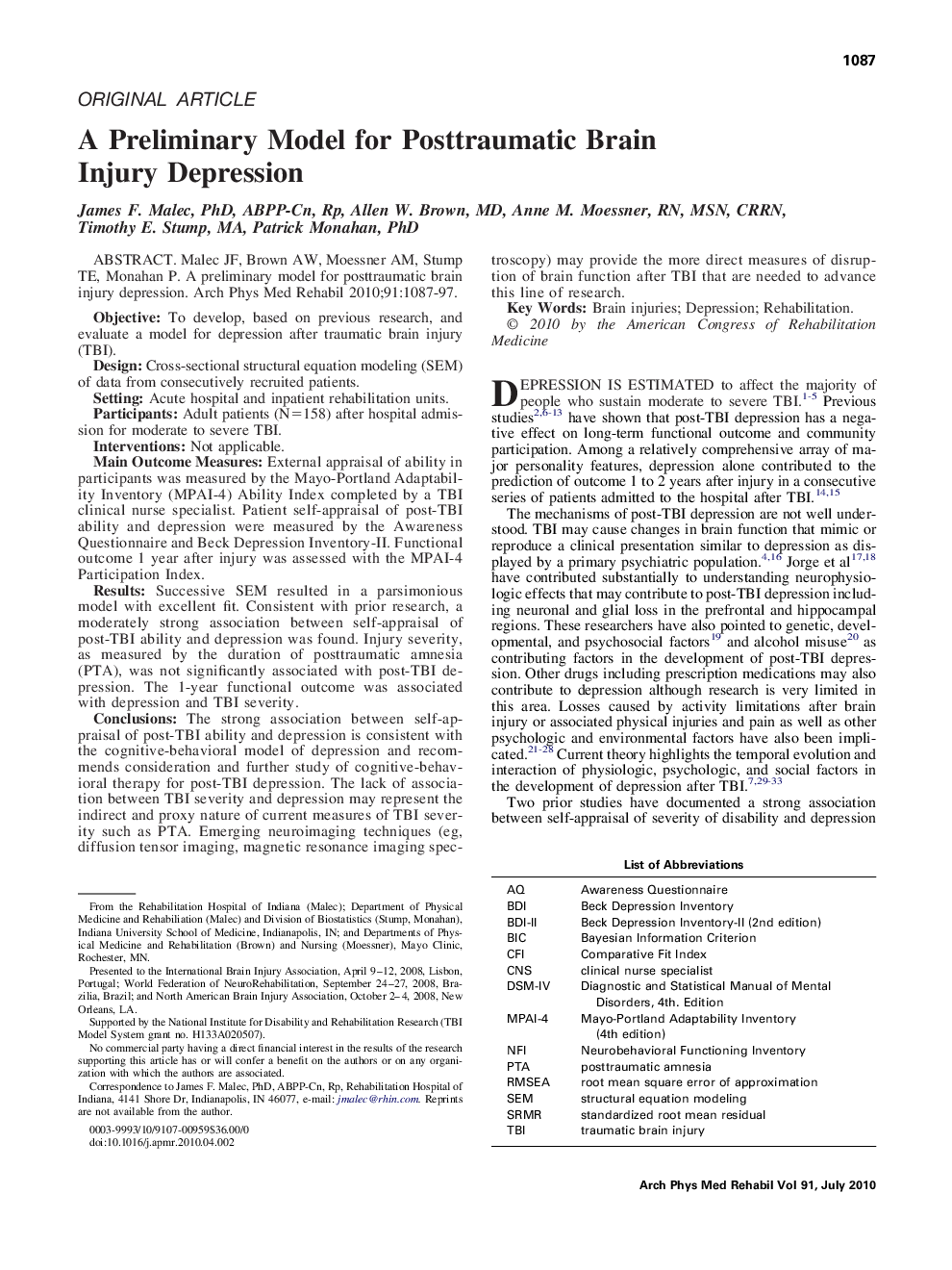| Article ID | Journal | Published Year | Pages | File Type |
|---|---|---|---|---|
| 3451051 | Archives of Physical Medicine and Rehabilitation | 2010 | 11 Pages |
Malec JF, Brown AW, Moessner AM, Stump TE, Monahan P. A preliminary model for posttraumatic brain injury depression.ObjectiveTo develop, based on previous research, and evaluate a model for depression after traumatic brain injury (TBI).DesignCross-sectional structural equation modeling (SEM) of data from consecutively recruited patients.SettingAcute hospital and inpatient rehabilitation units.ParticipantsAdult patients (N=158) after hospital admission for moderate to severe TBI.InterventionsNot applicable.Main Outcome MeasuresExternal appraisal of ability in participants was measured by the Mayo-Portland Adaptability Inventory (MPAI-4) Ability Index completed by a TBI clinical nurse specialist. Patient self-appraisal of post-TBI ability and depression were measured by the Awareness Questionnaire and Beck Depression Inventory-II. Functional outcome 1 year after injury was assessed with the MPAI-4 Participation Index.ResultsSuccessive SEM resulted in a parsimonious model with excellent fit. Consistent with prior research, a moderately strong association between self-appraisal of post-TBI ability and depression was found. Injury severity, as measured by the duration of posttraumatic amnesia (PTA), was not significantly associated with post-TBI depression. The 1-year functional outcome was associated with depression and TBI severity.ConclusionsThe strong association between self-appraisal of post-TBI ability and depression is consistent with the cognitive-behavioral model of depression and recommends consideration and further study of cognitive-behavioral therapy for post-TBI depression. The lack of association between TBI severity and depression may represent the indirect and proxy nature of current measures of TBI severity such as PTA. Emerging neuroimaging techniques (eg, diffusion tensor imaging, magnetic resonance imaging spectroscopy) may provide the more direct measures of disruption of brain function after TBI that are needed to advance this line of research.
